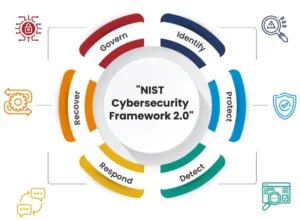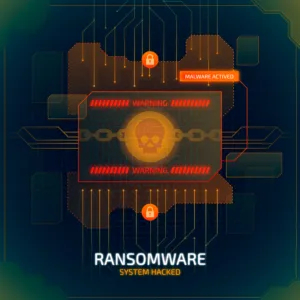
Table of Contents
Introduction
In this blog post, we will explore how blockchain can be leveraged to bolster security measures and protect against cyber threats.
In today’s interconnected world, the growing threat of cyber attacks poses a significant challenge to individuals, organizations, and even nations. As technology advances, so do the tools and techniques used by malicious actors to breach security systems and gain unauthorized access to sensitive information. In this context, blockchain technology has emerged as a promising approach to enhancing security and fortifying cyber defenses.
Understanding Blockchain Technology
At its core, blockchain is a decentralized and immutable digital ledger that records transactions across multiple computers, creating a permanent and transparent chain of data. Originally developed as the underlying technology for cryptocurrencies like Bitcoin, blockchain has since evolved to have far-reaching applications beyond digital currencies.
The key features of blockchain technology that make it well-suited for enhancing security are decentralization, immutability, and transparency. Unlike traditional centralized systems, where data is stored in a single location and vulnerable to attacks, blockchain distributes data across a network of computers, making it highly resistant to tampering and single points of failure.
Moreover, once data is added in the blockchain, it becomes nearly impossible to modify or delete, ensuring data integrity. The transparent nature of blockchain also allows for increased visibility, enabling participants to verify and audit transactions independently.
Security
One of the significant challenges in cybersecurity is securing sensitive data from unauthorized access or modification. Traditional approaches often rely on centralized systems with vulnerable points of entry that can be exploited by hackers. Blockchain, on the other hand, offers a decentralized and tamper-resistant platform for storing and managing data.
By utilizing blockchain technology, organizations can store sensitive information in a distributed manner, where each block of data is cryptographically linked to the previous one, forming an unbroken chain. This ensures that any attempt to tamper with the data will be immediately detected, as it would require altering the entire chain across multiple computers simultaneously.
Additionally, implementing robust encryption techniques further enhances the security of data stored on the blockchain.
Identity and Access Management
Another area where blockchain can significantly contribute to cyber defense is identity and access management (IAM). Traditional IAM systems generally rely on centralized databases that are vulnerable to attacks. Blockchain-based IAM systems provide a more secure and decentralized approach to managing digital identities.
Blockchain enables the creation of self-sovereign identities, where individuals have control over their own personal data and can selectively grant access to authorized entities. With blockchain, identity information can be stored on the distributed ledger, reducing the risk of data breaches and identity theft.
Moreover, the use of public-private key cryptography ensures that only authorized users can access specific resources, adding an extra layer of security.
Smart Contracts for Secure Transactions
Smart contracts, a core feature of blockchain technology, can also contribute to enhancing security in various transactions. Smart contracts are self-executing contracts with predefined rules encoded into the blockchain. These contracts automatically execute and enforce agreed-upon terms, eliminating the need for intermediaries and reducing the risk of fraud or manipulation.
By utilizing smart contracts, organizations can streamline processes and securely automate transactions, reducing the potential for human error or malicious activities. Whether it is supply chain management, financial transactions, or intellectual property rights, smart contracts provide a transparent and auditable mechanism for secure interactions.
Conclusion
As cyber threats continue to evolve, leveraging innovative technologies becomes crucial for enhancing security and fortifying defenses. Blockchain technology offers a promising approach to bolstering cybersecurity measures.
By leveraging decentralization, immutability, and transparency, blockchain provides a secure platform for storing and managing sensitive data, strengthening identity and access management systems, and facilitating secure transactions through smart contracts. While blockchain is not a panacea for all cybersecurity challenges, its unique features make it an essential tool.
Do follow on “https://cybertechworld.co.in” for more such insightful cybersecurity content.



















